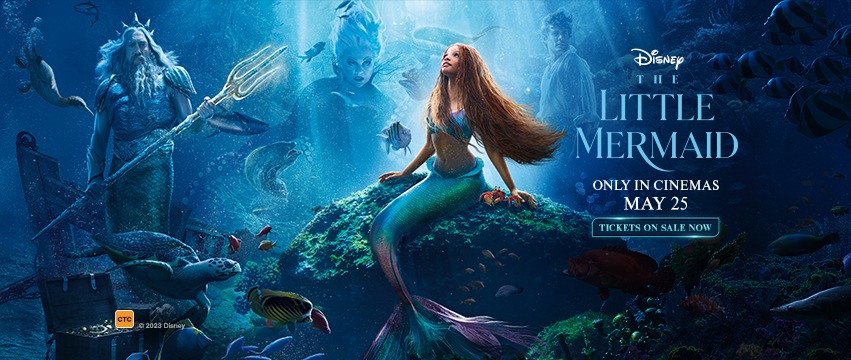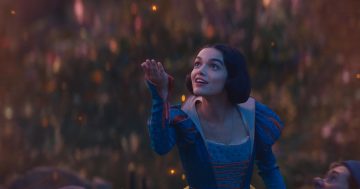
Despite mixed reviews of Disney’s previous live-action remakes of animated classics, The Little Mermaid is a flawed yet enjoyable experience. Image: Supplied.
The Little Mermaid is a beloved animated classic.
Kicking off Disney’s renaissance period in 1989, the film about a curious mermaid who just wants to be part of our world spoke to so many kids and continues to do so to this day.
Because of this, it was understandable that when a live-action remake was announced back in 2017, people were scared.
This is in part due to Disney’s recent run of poor live-action remakes including The Lion King, Mulan, Dumbo and Pinocchio, which have done little to reignite the wonder of their animated counterparts.
So despite the remake of The Little Mermaid being the best of the bunch, it still feels like a bit of a corporate cash grab without all the magic.
That being said, this is a solid family film.
Halle Bailey as Ariel was easily the most captivating part of the experience.
Despite the unfair and racially targeted backlash of her casting, Bailey was a class above everyone else in the film, a big statement as the movie features the likes of Javier Bardem as King Trident.
Her voice was incredible and her chemistry with Jonah Hauer-King’s Prince Eric was a joy to watch.
Melissa McCarthy’s performance as the evil and vengeful Ursula was also well contained. A criticism against McCarthy can be her over-the-top acting and often unfunny physical humour.
Unlike in some of her previous films, she is loud when she needs to be but contained in the tenser moments.
Unfortunately, the performances weren’t enough to distract me from some poor CGI and bland visuals during the underwater scenes, which is a big issue as 75 per cent of the film is set below the surface of the sea.
It all looks slightly off, almost to the point of it diving into the uncanny valley.
This is mainly due to the way the mermaids were filmed. Only the actors’ faces were shot, with everything from the neck down computer-generated, and as a result skin tones were off, things looked too glossy and, coupled with some poor blue screen, all of the surroundings looked like a Snapchat filter.
However, unlike other remakes such as The Lion King, The Little Mermaid’s CGI animals do a better job of conveying emotion.
Unlike Simba screaming out at Mufasa’s death with little to no emotive expression, Ariel’s companions, Sebastian, Flounder and Scuttle, are all generated in a way whereby I felt connected with what they were saying, despite the attempted realism of the character models.
One of the biggest issues was the film’s pacing.
For a film that sits at two hours and 15 minutes, a whopping 58 minutes more than the original, it takes way too long to get going.
The film spends the padded runtime fleshing out Prince Eric, who, in my opinion, is one of the weaker parts of the original.
While this does help add depth to his character, the time spent with Eric hinders the progression of the overall plot.
It takes just over 80 minutes for Ariel to meet Ursala and make her way to the surface, which realistically should be the end of the first act, not more than halfway through the film.
This leaves just under an hour for the two leads to come together while adding tension to the story before then resolving the plot and providing a happy ending.
It’s just not enough time to do all of it effectively, leaving the front half feeling overstuffed and full of exposition and the latter half feeling rushed and underdone.
Despite the negatives, I can’t deny the joy I had singing along and seeing a remake that was, despite its flaws, emotional and entertaining.
At the very least it meant that young children, including those in the young family sitting in front of me, could enjoy a beloved Disney classic on the big screen.
Head on down to Forum 6 Cinemas Wagga Wagga to see the latest films on the big screen. To book your tickets to The Little Mermaid, click here.










